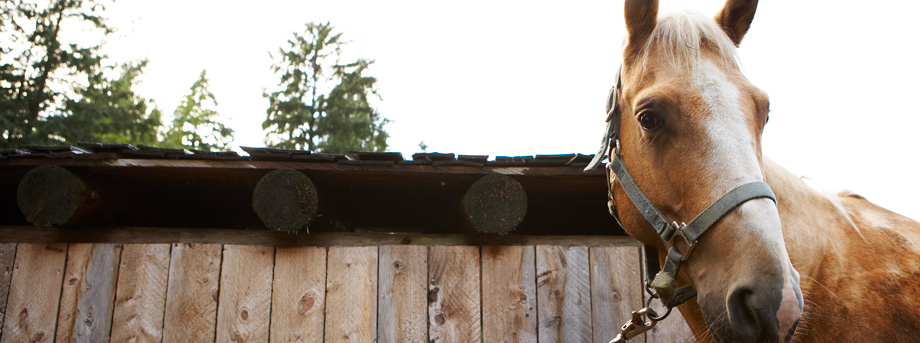Saddle soar
February 4th, 2011
At least one in five horses used for leisure is overweight or obese.
A pilot study, by the University’s School of Veterinary Medicine and Science, showed that rates of obesity among horses are likely to be just as high as they are among people.
The study, by third-year veterinary student Helen Stephenson, from Lydney, Gloucestershire, assessed the prevalence of obesity among horses whose owners were registered with Oakham Veterinary Hospital — one of the School’s clinical associates specialising in the treatment of horses.
Researchers in Scotland has already shown a prevalence of obesity in pleasure riding horses but this is the first time a study has been done in England. Questionnaires were sent out to 500 owners, none of whom kept horses for breeding, livery, riding stables, or competition. Of the 160 questionnaires returned, one in five showed that their horses were either overweight or obese.
The research was supervised by Dr Sarah Freeman, a specialist in veterinary surgery. Dr Freeman said: “This provides the first snapshot of the prevalence of obesity in horses in the UK and an insight into owners’ management of weight.
“Obesity is linked to a number of different diseases, including arthritis, laminitis and equine metabolic syndrome. A larger study would be useful to establish the prevalence and risk factors for equine obesity in different horse populations across the UK.”
Each owner was asked to score their horse’s weight from zero to five, with a score over three indicating excess weight.
The researchers assessed 15 randomly selected horses to see if owners had under or overestimated weight. They assigned an average score that was significantly higher for these horses; eight of the owners had scored their horse at least one grade lower than the researcher.
The authors estimated that the true prevalence of overweight/obesity was likely to be 54% rather than the 20% indicated by the questionnaire responses.
Helen said: “Increasing incidence of obesity is a multi-species problem, affecting both humans and their companion animals. I feel that addressing this issue is an important role for the profession, and I hope to do my part when I go into practice.”
Leave a Reply
Other News

Need news? See you on SharePoint
After 14 years of service, Campus News is being retired as the university’s staff news platform. […]

Roads and car parks closed for refurbishing work
As part of ongoing road improvements at the university, works will be taking place to resurface […]


